FILMMAKING – Belfast was written and directed by five-time Oscar nominee Kenneth Branagh. The story is told with humour, tenderness and passion by a young boy who lives through the turbulent late 1960s in the city where Branagh was born.
This movie is about a personal impression of the Belfast Branagh experience. A nine-year-old boy embarks on the journey to adulthood with the world around him turned upside down. Everything he thought he knew and understood about life is radically changed, but the invincible magic of joy, laughter, music and cinema remains with him.
1969, working family, North Belfast
In the summer of 1969, nine-year-old Buddy is perfectly aware of who he is and where he belongs. Born into a working-class family, he lives in North Belfast, happy, loved and safe. He roams the familiar streets with unbridled joy, his world rounded by a close-knit community whose members can always laugh together.
The people of a street are one big family, and no one can feel lost because everyone in Belfast knows everyone else, or so it seems. And in the darkness of the cinema and in front of the TV, American films and TV shows feed Buddy’s secret desires and dreams with intoxicating frenzy.
In the late sixties, however, even though man has already walked on the moon, the dark days of August turn Buddy’s childhood idyll into a nightmare. The social discontent that had been simmering just below the surface explodes and events quickly spiral out of control. Riots follow masked attacks, the conflict spreads across the city, and religious strife fuels the fires of unrest. Catholics and Protestants, once friendly neighbours, now see each other as mortal enemies.
Buddy is trying to find his way in this new world of chaos and madness, lockdown, heroes and villains he’s only seen in the movies, and everything he knows is falling apart as the unrest has moved into his backyard.
Mum is trying to cope, while Dad is working in England to support the family. The population is up in arms and innocent lives are at risk. Buddy knows what to expect from his heroes – he’s been influenced by westerns like Midnight and Who Shot Liberty Valance – but can his father become the hero he wants? Will his mother sacrifice her past to protect the family’s future? How can her beleaguered grandparents be protected? And how can he love the girl he’s about to marry?
The answers are provided by Buddy’s exciting, funny, sad and disturbing journey through riots, violence, the joys and sorrows of family relationships and the agonies of first love. All accompanied by the dancing, music and laughter that only the Irish can produce when the whole world goes mad.
What else can Buddy do? This is his only world. This is Belfast.
A dramatic and life-changing story
“Belfast is a city of stories,” says Branagh, “It went through an incredibly turbulent period in its history in the late sixties, with very dramatic, sometimes violent events that had a huge impact on my family and me. It took me fifty years to work out how to write it, how to tell it. The film was inspired by my childhood, a time in everyone’s life when a child starts on the road to adulthood and loses his innocence. This transitional period in Belfast in 1969 was given a big boost by the upheaval around us. At the beginning of the film, we see the idyllic conditions of good neighbourliness, sunshine and community togetherness suddenly dissipate as a frenzied mob descends on the neighbourhood like a swarm of bees, ending the peace. After the crowd has gone, the streets are filled with terrified people who feel they must lock themselves in in case there is another attack, and that is exactly how I remember it. I remember life being turned upside down in one afternoon, feeling like it was all happening in slow motion, not understanding what all the noise was about, then turning around and seeing the crowd at the end of the street and life never, ever going back to normal. I had the impression that something dramatic and fateful was happening, because people can sense when a new era in their lives is about to begin, although it is not always brought about by such shocking external events.”
Branagh started writing the film in 2020, during the first pandemic curfews. “Once the plot started to take shape, I realised it wasn’t just the familiar story of a small family in a tight spot, having to make life-changing decisions. But there is also a kind of constraint here, because we are barricaded in at the end of the street, and the family is forced to make a choice between going or staying. So certain moments in the story resonate with our concerns today with the pandemic – we’re locked in and we’re worried about our own safety and the safety of our loved ones.”
The influence of Almodóvar
When it came to describing his approach to the story, Branagh was struck by the phrase Pedro Almodóvar applied to his film Pain and Glory. “He called it autofiction. It was about his life, but he was analysing the story to a certain extent, and I was doing something like that. We see events through the eyes of a young boy, Buddy, who I modelled on myself. He begins to filter his experiences through film and TV experiences and imaginary events and stories. The images I saw on the bead canvas had a huge impact on the development of my imagination and I wanted to show that Buddy had the same experiences. He loves westerns and Belfast felt like a wild west town, so I sometimes had the feeling that I was writing a western that was taking shape in Buddy’s imagination. The movies he sees are centred on the good guy/bad guy dichotomy, the righteous fighting the wicked, and he can adapt that nicely to reality when he sees the bad guy down the street beating people up and maybe even having a gun. So the story isn’t about someone’s life specifically, but it’s a film of its own, and it’s in Buddy’s head. Fifty years on, it’s obvious that what Buddy sees is not exactly the same as what I experienced, but there is a poetic truth that shines through, which is authentic and probably the basis of most drama. Everything in the film comes from what happens in the imagination of a nine-year-old boy.”
“I hope the audience will enjoy Buddy’s story. Belfast has its own spirit and buoyancy, which hopefully comes through in the film, which is imbued with a lively sense of humour. I want the audience to feel all the joys and sorrows of the city, to root for the family, and to realise that when they compare their fate with that of others, they are not alone. If my film can convey all this, I have not made it in vain.”
When the script was ready for spring 2020, it quickly moved towards implementation. Casting and production pre-production took place over the summer, and the film was among the first to start shooting in Northern Ireland and England during the epidemic restrictions. “We tried to find the positive aspects of the pandemic,” says Branagh, “One was that the cast had to live in a bubble, so they could bond as a family very quickly, which was crucial for the film. The two boys, Jude Hill (Buddy) and Lewis McAskie (Will), very quickly became like real brothers and became good friends with Lara McDonell, who played Moira.
The cast
The most important factor was finding Buddy, whose point of view and imagination is the driving force behind the film.
“I’ve always found it very exciting when excellent child actors play the life situation where you have to ‘put aside childish things’, as the priest says in our film,” Branagh continues, “This is what happens in John Boorman’s Hope and Glory, where war accelerates the process of growing up. Christian Bale is breathtaking in Spielberg’s Empire of the Sun. Louis Malle’s Goodbye, Children is also groundbreaking in its portrayal of children. You can see how important these films were to their directors for personal reasons. They were compelled to tell these stories, and all of them have had a great impact on our films.”
The worldwide hit Game of Thrones was filmed in Northern Ireland, and as a result the Belfast crew found a great infrastructure for casting. In the first round, some three hundred young boys were auditioned. After the first tense, long-distance phase, the list was narrowed down to thirty, then down to twelve candidates, and finally the finalists were selected via Zoom.
Hill child could stay…
“In Jude Hill, we found a boy who can show his burgeoning talent but still enjoys being a normal kid,” says Branagh.Football was as important to him as being in the film. At the same time, he was very serious about the job, very prepared and very open. I expected an interesting combination from him – to be himself but also to bring the acting nuances that I had in mind. And he met all my expectations. He’s so open to everything and so natural in front of the camera that it’s hard to believe this is his first film.”
Branagh expected the adult characters to be extremely authentic. “Catriona Balfe, who plays Mum, is of Irish descent, grew up on the border, has a perfect grasp of the dialects and knows how an Irish family lives,” says the director. Ciarán Hinds, who plays Buddy’s grandfather, Daddy, grew up about a mile from where I lived in Belfast.”
Judi Dench also has Irish blood in her veins – her mother was from Dublin – and is so well prepared for every role that she can play anyone. These actors played with a verve that amazed me, and their directness allowed them to quickly become a family.”
-theGeek-
(To be continued…)
Source: UIP

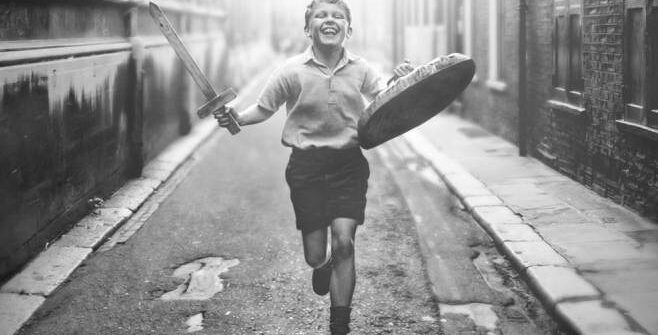
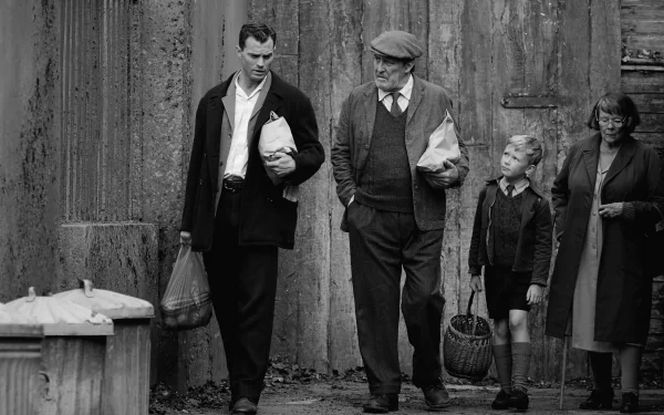
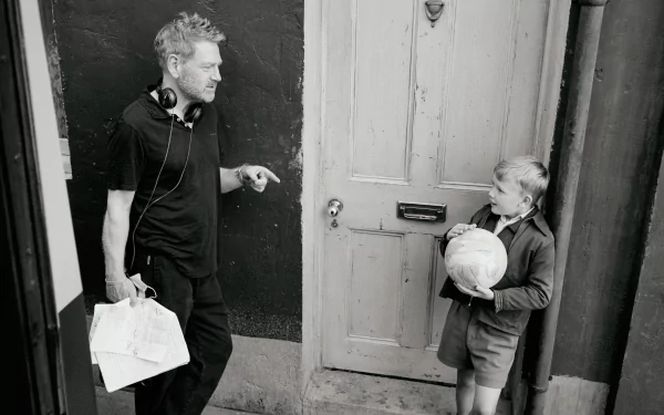
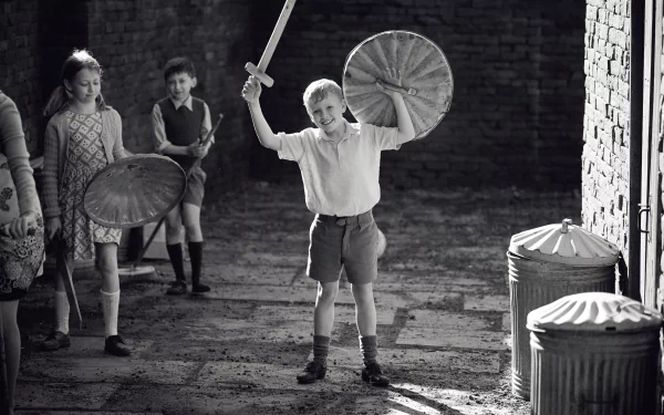
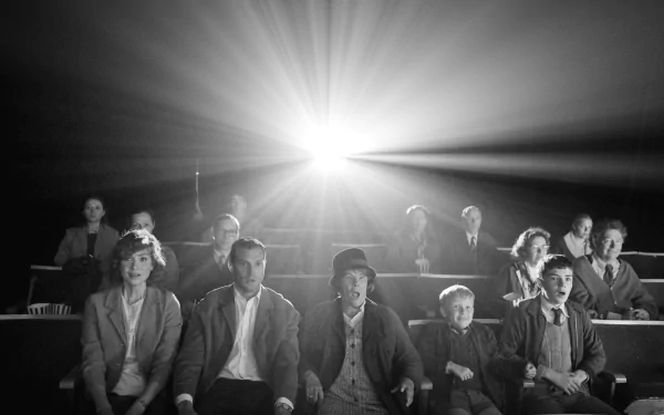
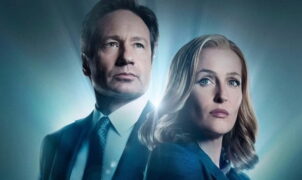
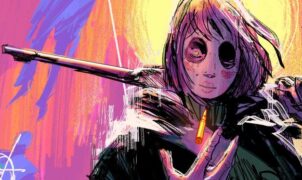
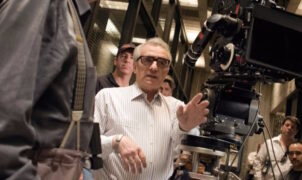
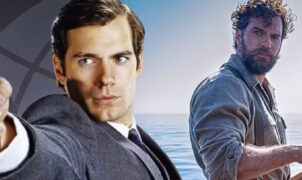
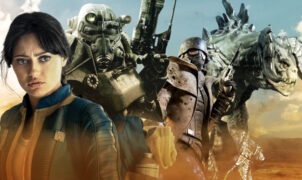
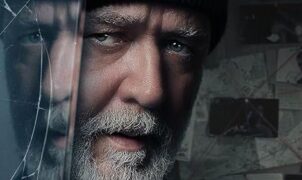
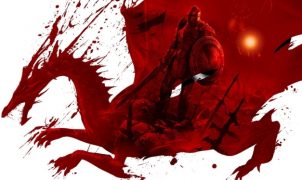
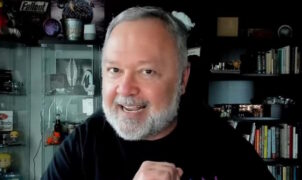
![No One Can Say "Yeah..." as Badass as Keanu Reeves in the John Wick: Chapter 4 Trailer [VIDEO]](https://thegeek.games/wp-content/uploads/2022/07/theGeek-John-Wick-Keanu-Reeves-2-302x180.jpg)
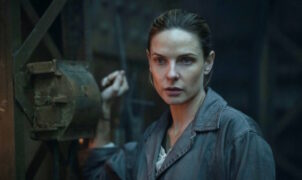
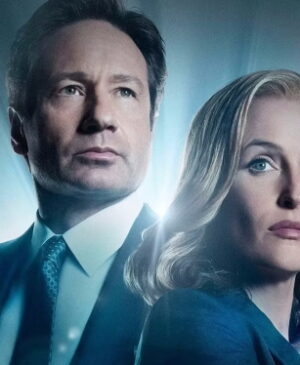
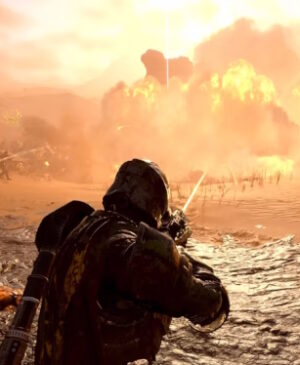
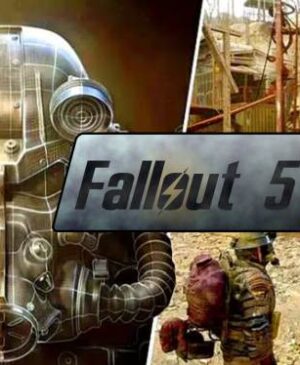
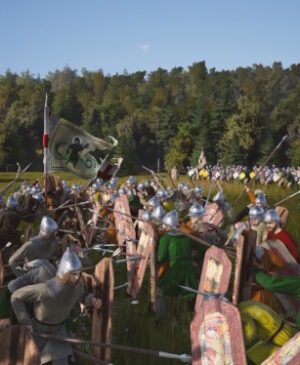
Leave a Reply